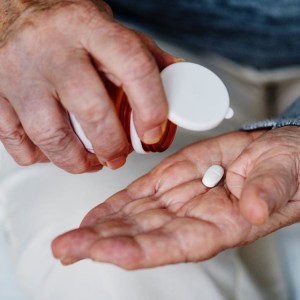 With the opioid epidemic making headlines every week, it’s understandable to be worried about the risk of addiction if you or someone you love has been prescribed opioids. However, you must remember that opioid medication does play a vital role in the management of chronic pain for certain individuals. It does these patients a disservice when a misunderstanding of addiction results in unnecessary withholding of opioid medications.
With the opioid epidemic making headlines every week, it’s understandable to be worried about the risk of addiction if you or someone you love has been prescribed opioids. However, you must remember that opioid medication does play a vital role in the management of chronic pain for certain individuals. It does these patients a disservice when a misunderstanding of addiction results in unnecessary withholding of opioid medications.
Chronic Opioid Use as a Last Resort
Although opioids are often used to control short term pain from surgery or injuries that are expected to fully heal within a specific period, this type of use is considered low risk. The primary concern in terms of addiction is the chronic use of opioids over an extended period of time.
According to the American Academy of Pain Medicine, chronic opioid therapy (COT) is only appropriate for use if the patient suffers from moderate to severe pain and more conservative measures have not been able to provide sufficient relief. This might include:
- Non-opioid pain relievers
- Physical therapy
- Transcutaneous electrical nerve stimulation (TENS)
- Ultrasound
- Therapeutic massage
- Chiropractic care
- Mind-body techniques such as mindfulness meditation
Although the perception of pain can be subjective, there is no doubt that living with chronic pain greatly affects one’s quality of life. Pain limits the ability to engage the activities of daily living and increases a person’s risk for developing anxiety and depression. For this reason, healthcare professionals must struggle to find a middle ground between limiting access to addictive opioids and providing relief to sufferers of chronic pain.
Dependence Isn’t Necessarily Addiction
The term dependence means that the body has physically adapted to having a steady supply of a substance in the system. When the substance is no longer being used, withdrawal symptoms such as headaches, nausea, vomiting, diarrhea, fatigue, and restlessness can occur.
Dependence and addiction are often used interchangeably in reference to opioid painkillers, but it’s important to note that the two are not always the same. Although someone with an addiction is likely to also be dependent upon the opioid medication, it’s possible to be dependent without being addicted.
Dependence can occur whenever a medication is being taken for a long period of time, even if it is used precisely as prescribed and isn’t considered addictive. For example, patients can develop a dependence when they take antidepressants to treat chronic depression even though these medications aren’t thought of as addictive. If they wish to stop or switch to a different drug, tapering the dose helps to minimize the severity of withdrawal symptoms.
Distinguishing Between Tolerance and Disease Progression
Tolerance refers to the need to increase a dosage of a substance to experience the same effects due to prolonged use. Tolerance is often thought to be a warning sign of a substance use disorder, but chronic pain patients may confuse tolerance with disease progression. For example, someone taking opioids to cope with cancer pain may require higher doses due to the progression of the cancer even if he or she takes the medication as prescribed. Osteoarthritis is another of a condition where pain levels can be expected to increase over time as the disease progresses.
It can be difficult for the layperson to determine the difference between a patient developing tolerance and someone who is experiencing more pain due to disease progression. This is why careful monitoring of opioid use is necessary.
Seeking a Substance Abuse Evaluation
The fact that someone has been using opioids for a long period of time doesn’t necessarily mean he or she has developed an addiction, but a substance abuse evaluation is in order if any of the following apply:
- Lying about the severity of symptoms to obtain more medication
- Seeing multiple doctors to increase availability of opioids
- Borrowing, stealing, or illegally purchasing medication
- Becoming defensive or angry when asked about opioid use
- Mixing opioids with alcohol or other addictive drugs
- Decreased performance at work or school due to opioid use
- Withdrawing from family and friends to spend more time using opioids
- Feeling powerless to control opioid use
It is important to remember that addiction can affect people of all ages, races, and socioeconomic backgrounds. It’s not a weakness or a character flaw. In fact, this form of a substance use disorder is considered unintended addiction because sufferers often originally took their medication exactly as prescribed.
If you or someone you love needs help treating opioid addiction, St. Joseph Institute for Addiction provides a peaceful and serene environment in which to take the first steps towards recovery. Detox, counseling, holistic treatments, and access to aftercare resources provides clients with the tools they need to set a foundation for lasting sobriety.
By Dana Hinders
To learn more about our programs, please visit our website.
Related articles: